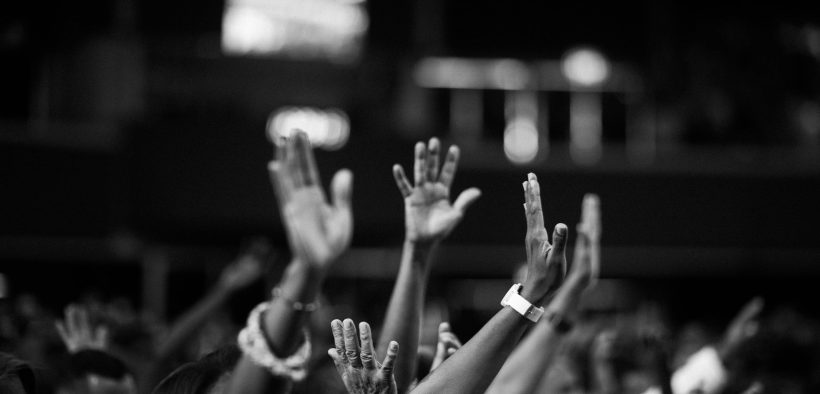One-Fifth Of Black Americans Not Affiliated With Any Religion, Straying From Majority Black Churches

One in five Black Americans are not affiliated with any religion and instead identify as atheist, agnostic, or religious “nones,” according to a new Pew Research study.
The trend towards secularization is continuing to grow with each new generation, though many who don’t affiliate with a religion still consider themselves spiritual and try to live out various beliefs outside of religious institutions. About 28 percent of Gen Z is religiously unaffiliated, compared to 33 percent of Millennials, 5 percent of the Silent Generation, 11 percent of Baby Boomers, according to the Feb. 16 study.
Pew polled 8,600 Black adults ages 18 and older, finding that Black Americans are still more religious than the U.S. public overall—with 97 percent claiming to believe in God or another higher power compared to 90 percent of the public overall.
Sixty-six percent of Black Americans attend Protestant churches at least sometimes. Only 6 percent identify as Catholic and 3 percent identify with other branches of the Christian faith, like Jehovah’s Witness. Another 3 percent identify with another religion completely, like Islam.
Access to MinistryWatch content is free. However, we hope you will support our work with your prayers and financial gifts. To make a donation, click here.
Sixty percent of Black Americans who attend religious services attend a predominantly Black church with Black clergy and a fully African American congregation. Black church services are also more likely to be interactive—offering more outward expressions of approval, like a shouted “amen!” during sermons. Half of Black churchgoers say their services include speaking in tongues, a charismatic tradition.
Two-thirds of Black Protestants are likely to say that they attend predominantly Black congregations where the majority of the laypeople and clergy are Black Americans. Only 25 percent of Black Americans attend multi-racial congregations, with even fewer attending predominantly White churches (13 percent). While around 34 percent of religious Black Americans say it would be “very important” for their church to be majority Black, most, or around 64 percent, say it would be “not too important” or “not at all important.”
Roughly three-quarters of Black Americans also say they see Christianity as a productive tool for fighting racial injustice in the U.S., and that it has played a valuable role in the struggle towards racial equality. Thirty percent of Black Americans say the Church has done “a great deal” in fighting racial inequalities.
But the majority of Black adults in the U.S. do not regularly attend church services. Young people (Gen Z, Millennials and Gen X) are least likely to attend church—and those who do attend church are less likely to attend predominantly Black churches.
Among all of the religious and non-religious groups, there is not a solid ideological divide. Black Americans tend to vote consistently Democratic whether or not they identify as religious.
This article first ran at Religion UnPlugged. It is reprinted with permission.



